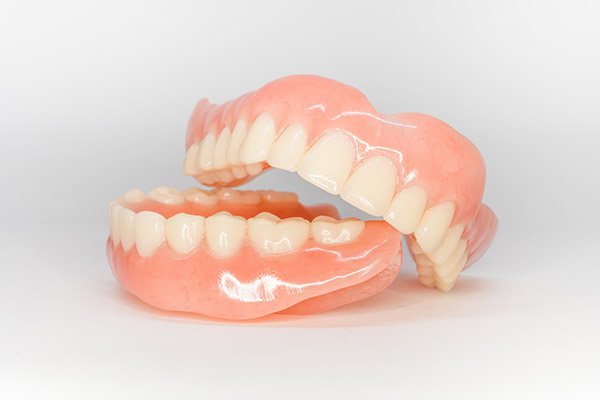Quick Guide to All-on-4® Dental Implants

While dental implants have been used for decades to replace missing or extracted teeth, All-on-4® implants are a newer development used to substitute an entire arch of teeth. This solution is an alternative to traditional removable dentures and is designed for patients who have lost a majority of their teeth due to gum disease or another cause.
The All-on-4® procedure
Read on for common questions and essential information for anyone considering this dental procedure.
Who is a candidate?
This treatment is acceptable for healthy patients of all ages who have widespread damage to the teeth or who are currently wearing removable dentures. It is also important that a patient’s jawbone has enough bone to support the implants. If a 3D CT scan reveals there is not an adequate foundation to proceed with the procedure, a bone graft may be needed ahead of time to strengthen the jaw structure.
What happens during the surgery?
All-on-4® implants involve a full prosthetic bridge secured to the jawbone with four strategically placed titanium implants. The gum-like base of the prosthetic is most often made from acrylic, and the teeth are made from resin or porcelain. This arch is prepared prior to the patient’s appointment by dental lab technicians.
While the exact process varies depending on the patient’s unique situation and the office’s protocol, it is not uncommon for a person to have any teeth extracted, implants placed and prosthetic placed all in one day. Some offices may provide the patient with temporary dentures during a three- to five-month healing process and then schedule a second appointment for attaching the permanent bridge.
What is required for aftercare?
Patients need time to recover after surgery and may experience discomfort in the days following the procedure. People often take several days off work to rest and heal. Rinsing with salt water every few hours is recommended to minimize bleeding. The patient should stick to a soft diet for at least a week or two.
Facial swelling and bruising in addition to minimal bleeding from the surgical area is to be expected. There are several other common issues a person may experience:
- Nausea and lightheadedness
- Sharp feelings in the mouth due to protruding bones
- Stiff jaw muscles
- Dry lips
- Sore throat
Patients should contact a dentist if they are bleeding excessively from the site or experiencing extreme pain. Any signs of infection or improper healing needs to be addressed immediately. While rare, it is possible for the implant to fail due to a variety of reasons. Loosening of the implant, gum recession or swelling and problems chewing are all signs of a failed implant.
Conclusion
For patients who meet the qualifications necessary for All-on-4®, it is possible to get a whole new arch of teeth in one visit. A comprehensive consultation is necessary to determine the right course of treatment for each individual patient. Getting in contact with a dentist is the first step in determining if this is the appropriate restorative option for your missing or damaged teeth.
Are you considering All-on-4 in the Atlanta area? Get more information at https://atlantapamperedsmiles.com.
Check out what others are saying about our services on Yelp: Read our Yelp reviews.
Recent Posts
The dentist uses dentures as options for replacing missing teeth in the mouth, correcting aesthetic problems, and allowing you to talk and eat normally. On average, they last up to five years, but they require proper cleaning and maintenance. There are many ways to keep them looking and functionining properly.People often ask the dentist about…
Cosmetic dental treatments can bring you closer to the smile of your dreams. The main focus of these services is to enhance the appearance of the smile, which in turn boosts confidence. They can even make oral hygiene and care easier, although that is not the primary purpose. Knowing when it is time to consult…
When it comes to replacing missing front teeth, there are options available. This article reviews some popular tooth replacement options so you can preserve your smile and your health. Due to their position, losing front teeth may undermine your self-esteem and make you less inclined to smile for photographs. However, it is about more than…
Many circumstances might cause you to look into replacing a missing tooth, regardless of your age. Those who do not take care of their teeth and gums are at particularly high risk for tooth loss, as both gum disease and decay can damage gums, tooth roots, and teeth. Cavities can lead to significant damage, as…


